Vincent Tillmann's 15 Bilder (abstract)
The following visual sequence is grouped in threes: Vincent Tillmann's 15 paintings, Drew Lesso's 15 representational graphics of tonal harmonics and Herbert Menke's 15 distributions for a slide show click track that are also inscribed with Drew's tonal notations. One will probably ask, what came first? Well, Vincent's paintings of course, nice and large paintings too. A painting would be laid flat and draped in clear plastic as Drew measured out a paintings figurative tonal harmonic inches for scale and motif building. Color percentages were estimated and notated on the lambdoma tonal matrix. Herbert was responsible for the order of the paintings in addition he chose 18 scaled durations to distribute 312 slides with a click track on two projection screens in a 34 minute duration.
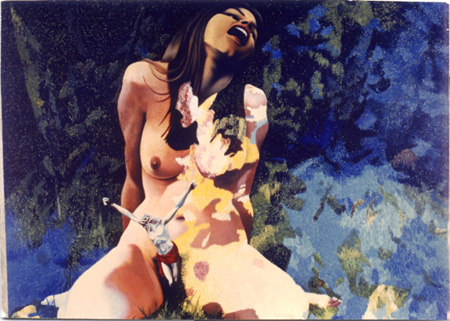
#1 Birth of a Revolutionary
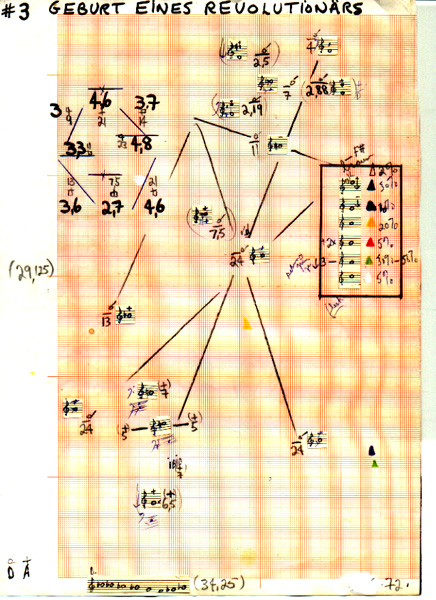
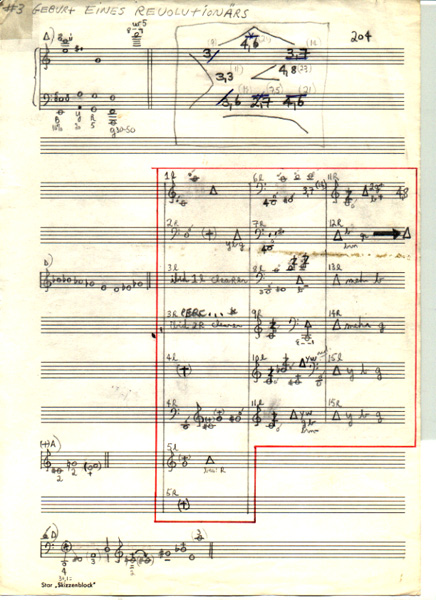
• • •
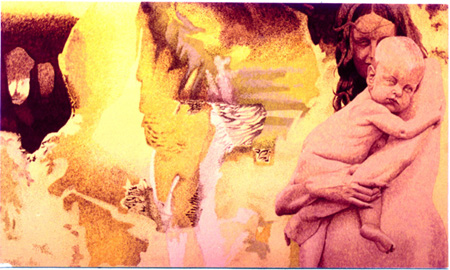
#2 The Small Enlightened One
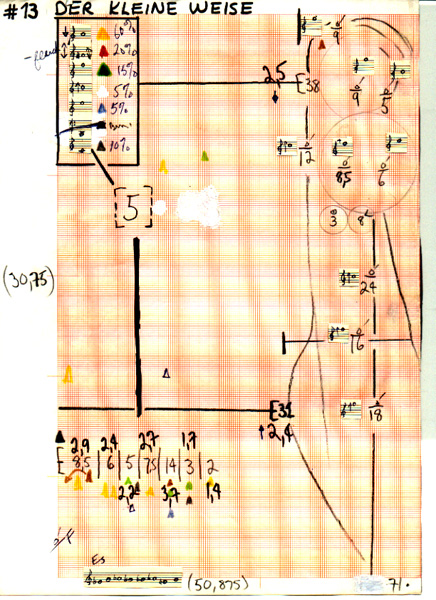
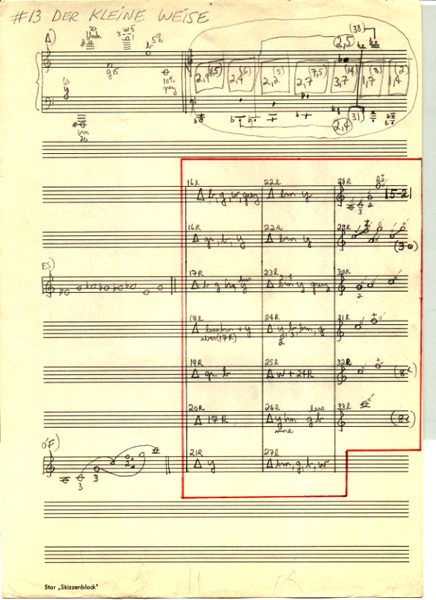
• • •
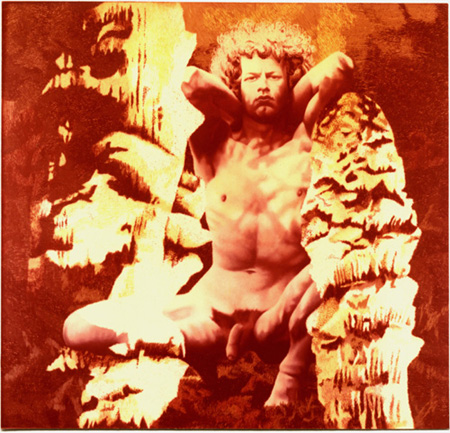
#3 Juppi
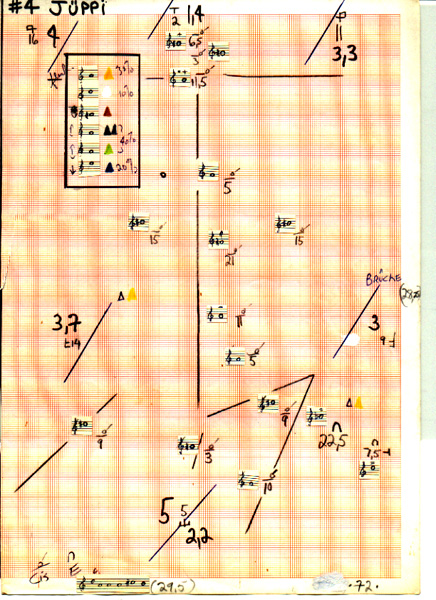
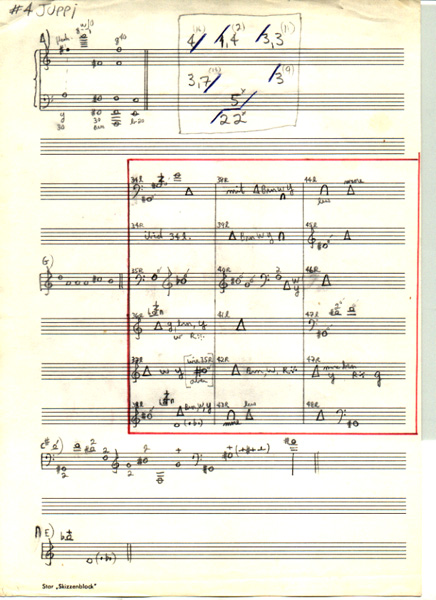
• • •
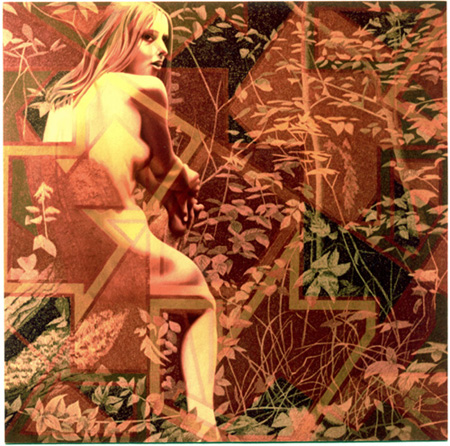
#4 Seven Facets
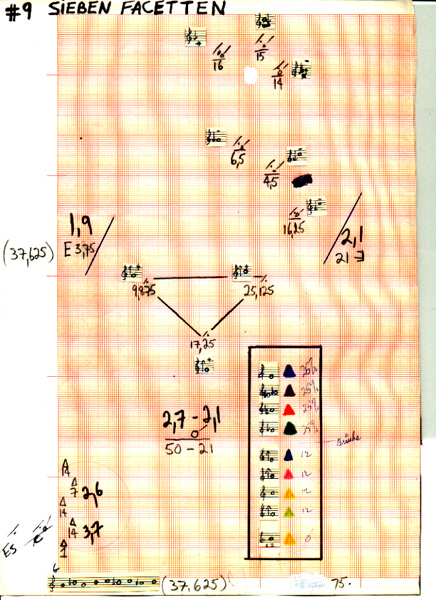
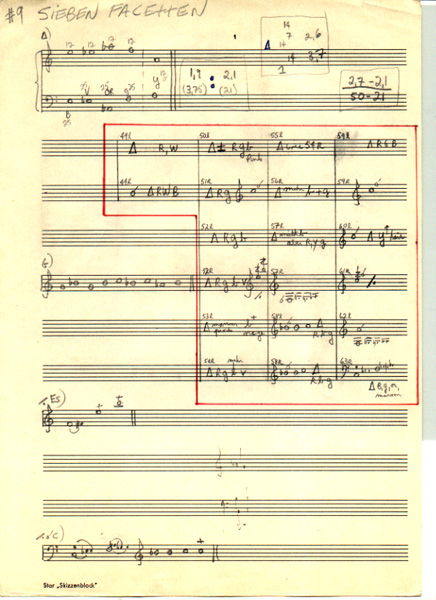
• • •
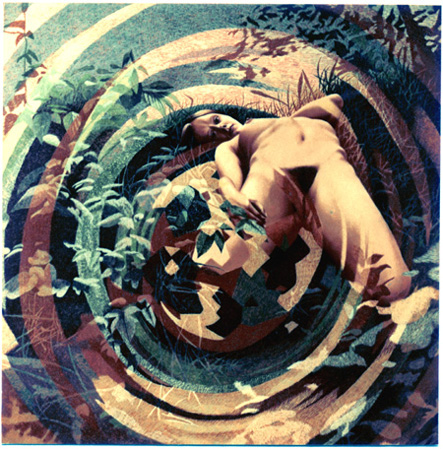
#5 Mandala Erotique
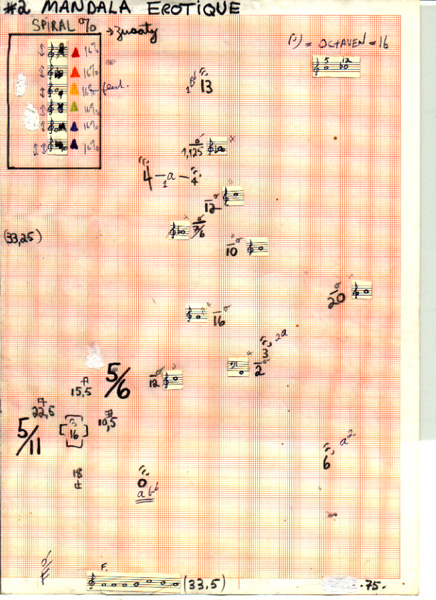
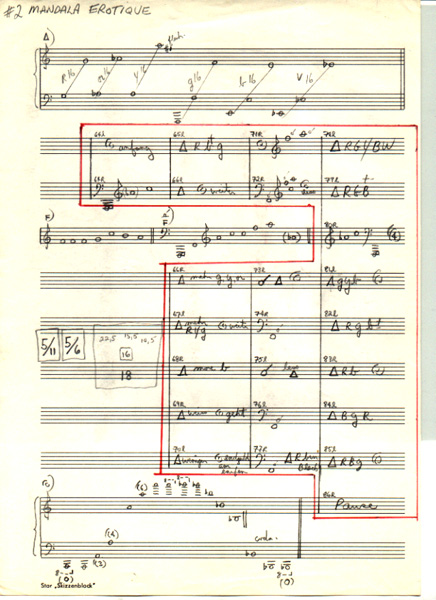
• • •
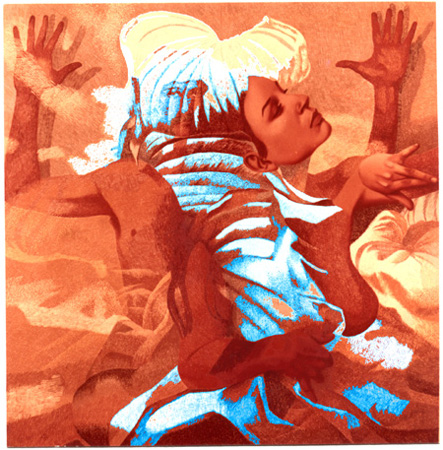
#6. Dance After Vivaldi"s Seasons
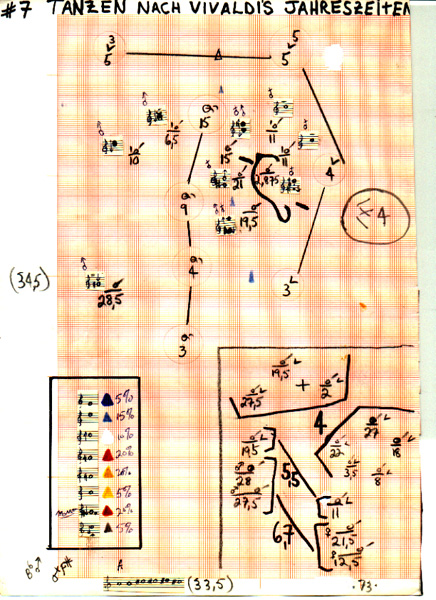
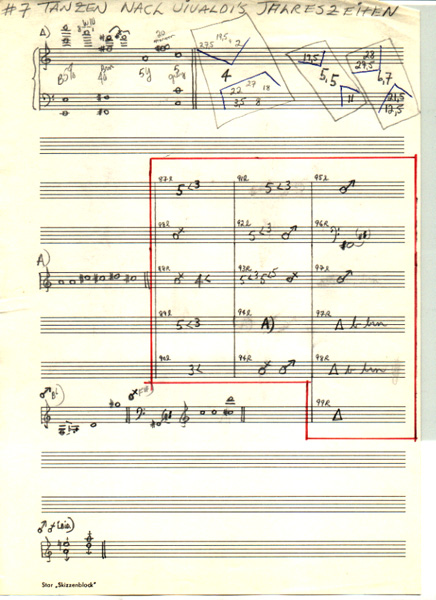
• • •
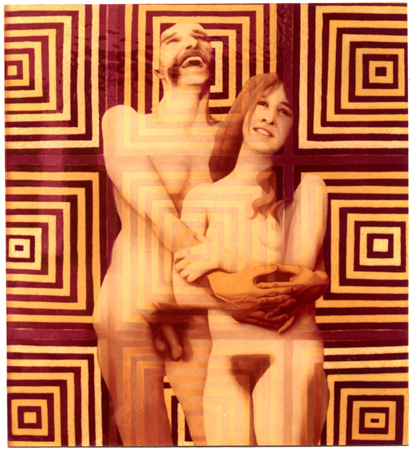
#7 Caught, Self-Conscious, Entangled
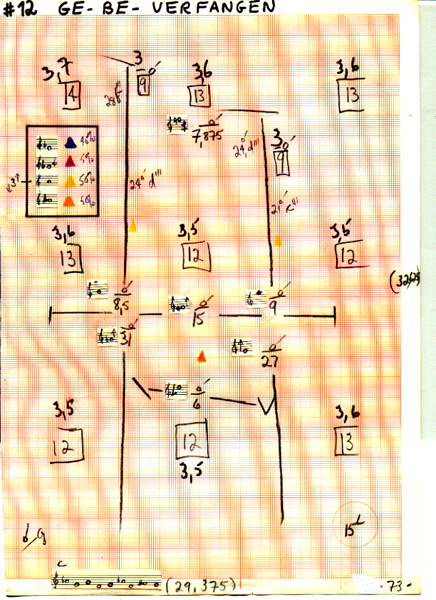
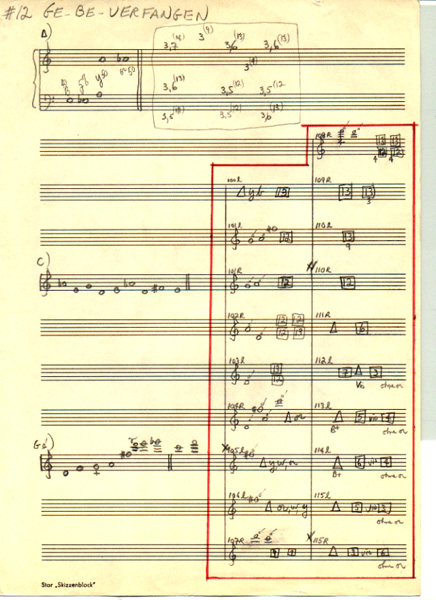
• • •
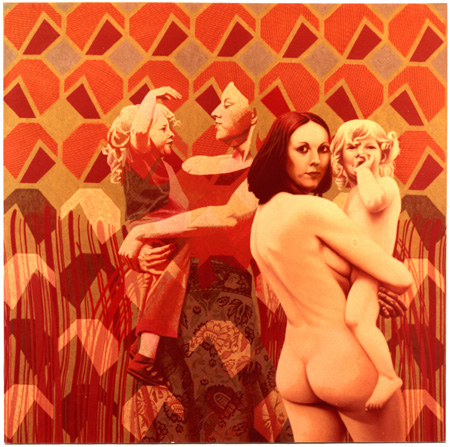
#8 Eight Expansions of the Soul
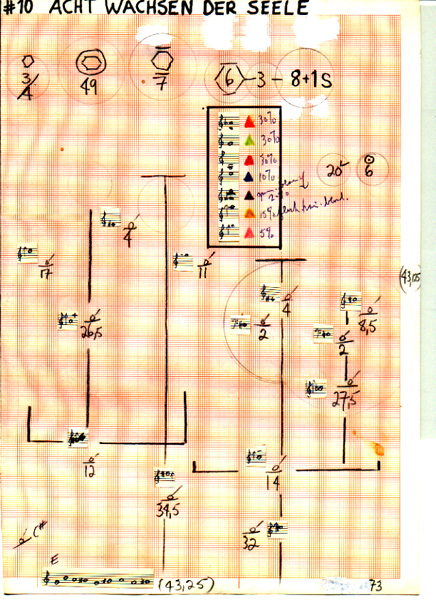
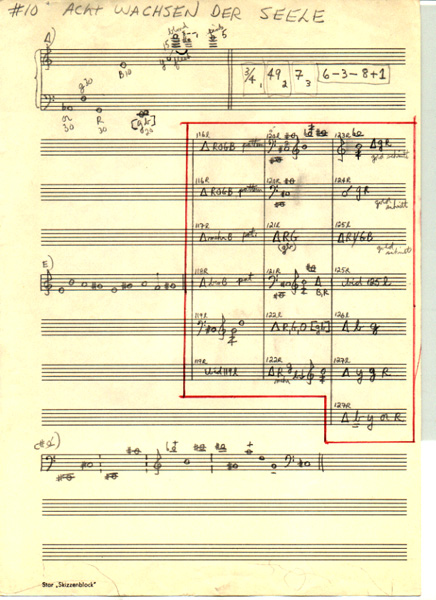
• • •
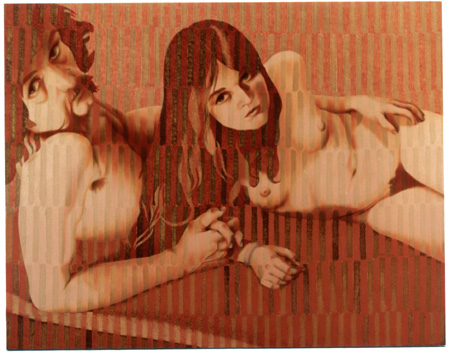
#9 Raster Transparent
(portrait of Vincent's Mom & Dad)
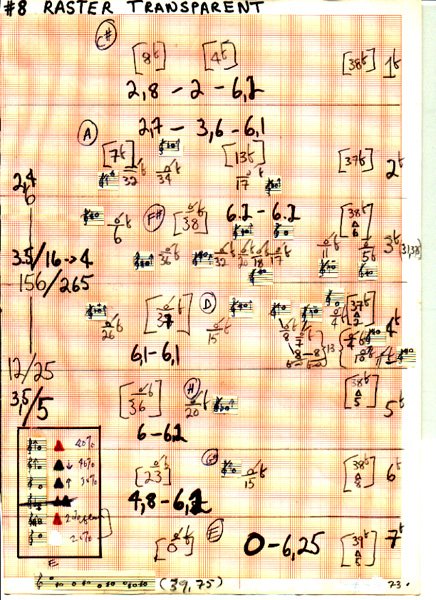
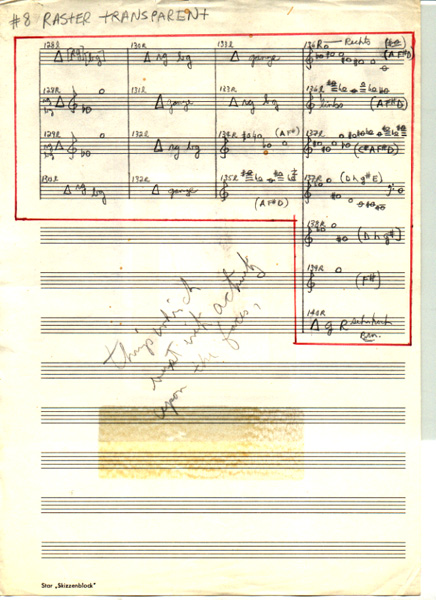
• • •
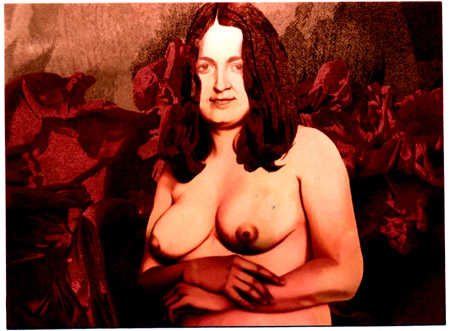
#10 Mona Verena
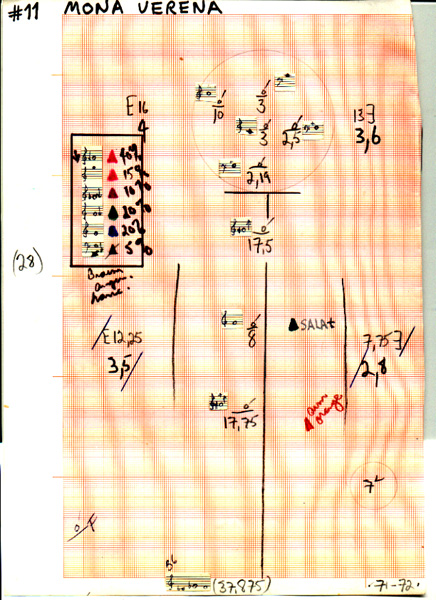
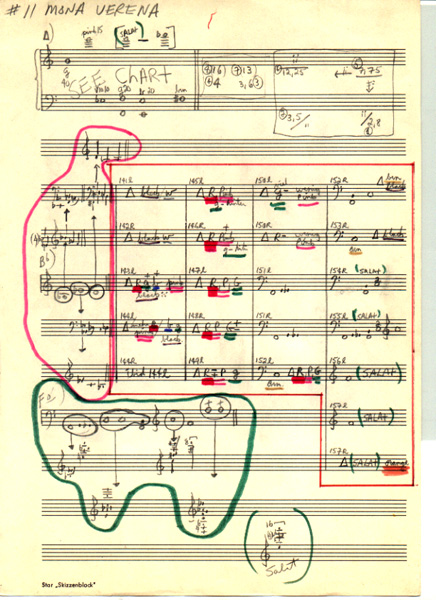
• • •
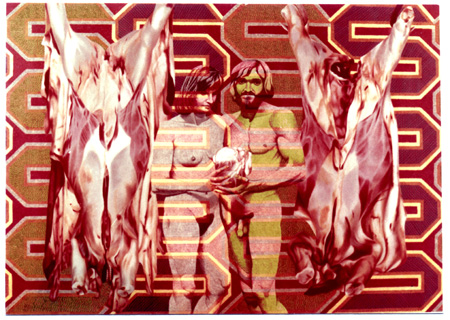
#11 The Fall from Grace - Good Tasting Badness
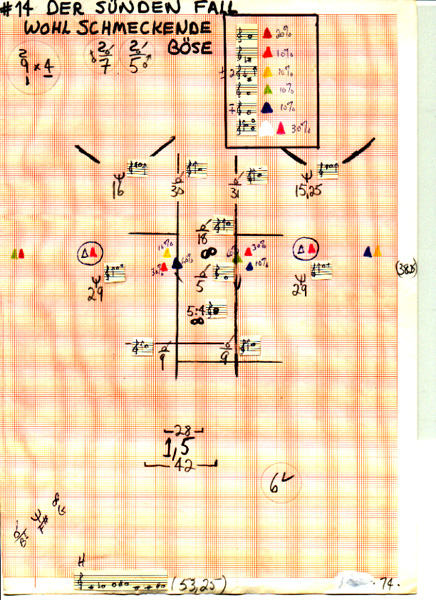
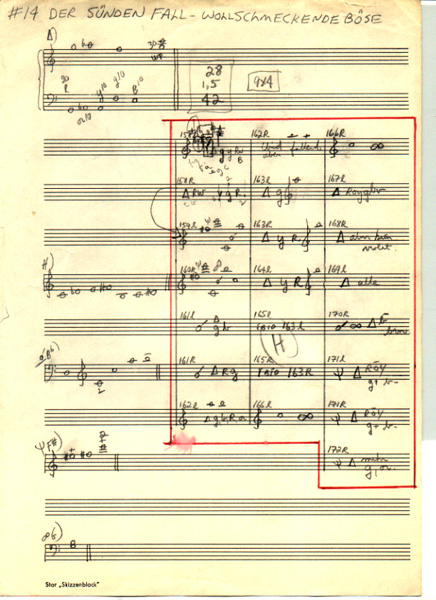
• • •
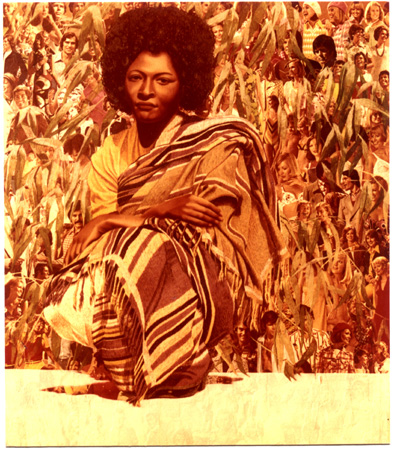
#12 Gladys
(after an image of Angela Davis)
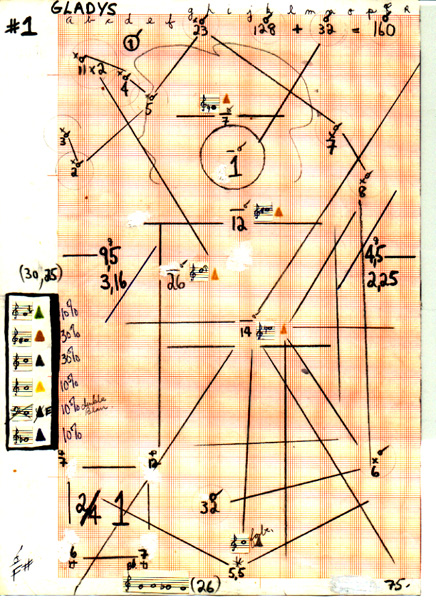
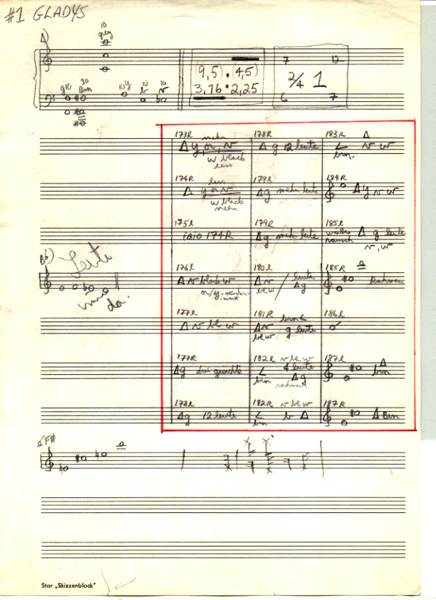
• • •
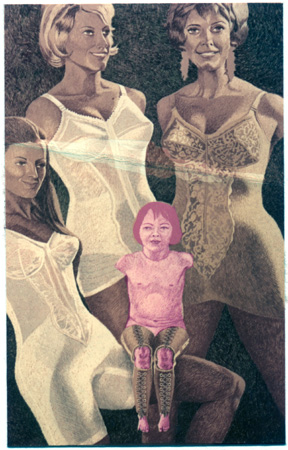
#13 Happy Body
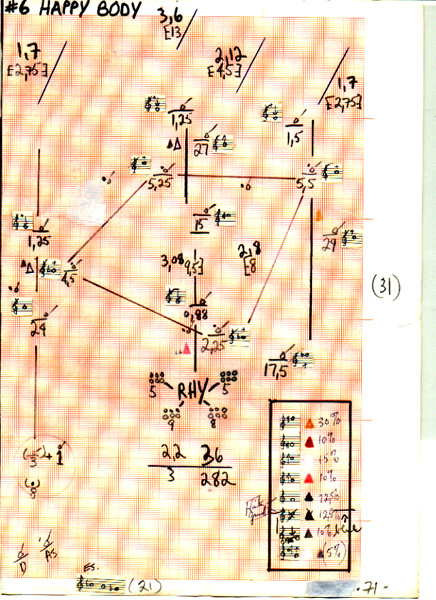
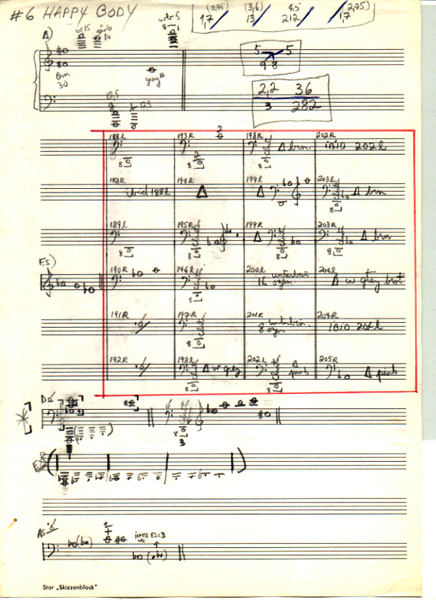
• • •
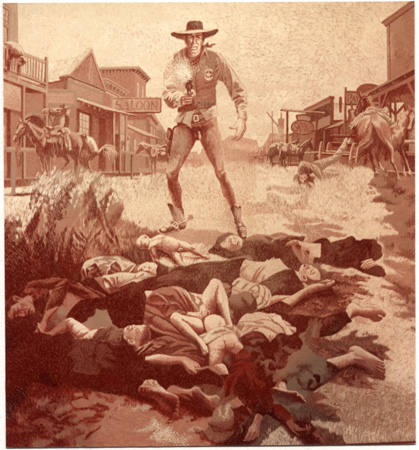
#14 Lawman
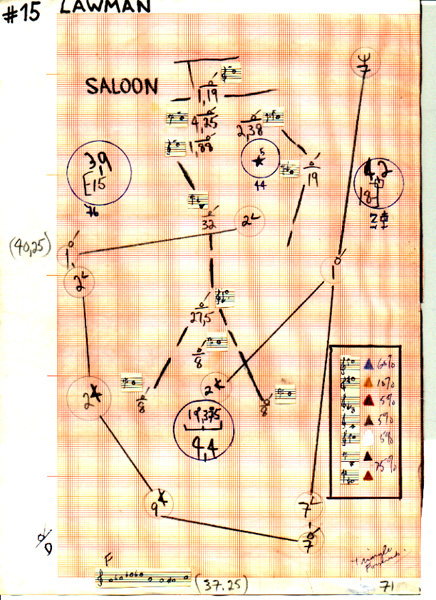
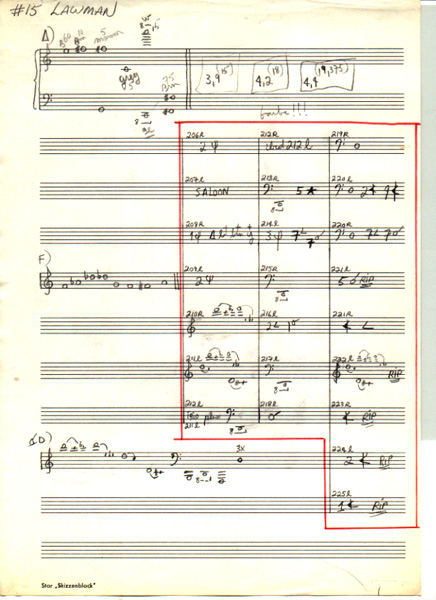
• • •
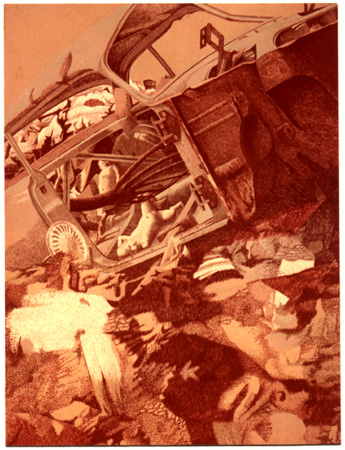
#15 Objet-Jetter
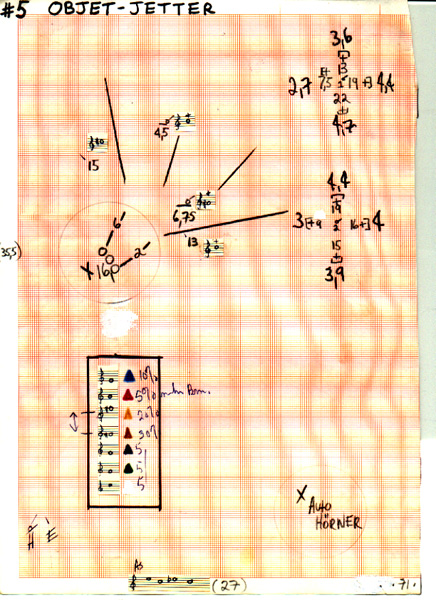
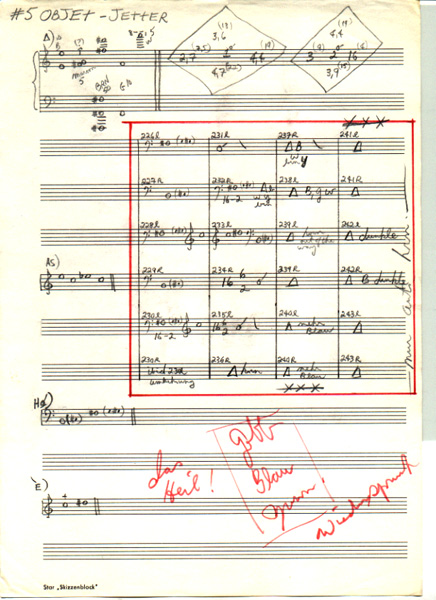
• • •

Fade to Blue (postlude)
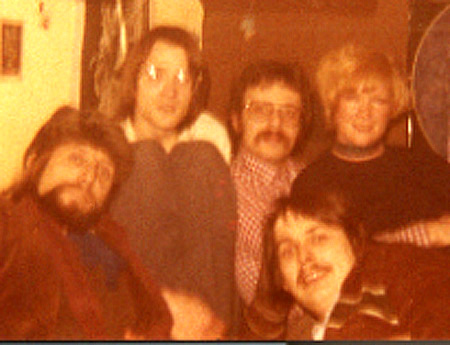
Realists of Cologne 1976
l-r Vincent Tillmann, Drew Lesso, Gunter Thelen, Herbert Menke, Cordy.
This collaboration started in April 1975 and was completed exactly a year later for a showing in Dusseldorf at Galerie De De Novum. The music slide show was also shown privately at the Bonn Kultur Center and at the WDR in a private showing with Stockhausen and the artists.
Two months were spent photographing the paintings, creating a slide show with click track and organizing the tonal harmonics for music composition. Another month, spent notating a description for each slide, marking the changing slides in the empty music score and combining each slide with its associated tonal harmonics. Seven months spent composing the music for piano, flute and cello. Two weeks to record multiple takes, two weeks to mix at the WDR electronic music lab with Dr. James Whitman and two weeks to lock the slideshow to the music with two weeks left to show time at the De De Novum gallery.
Two months were spent photographing the paintings, creating a slide show with click track and organizing the tonal harmonics for music composition. Another month, spent notating a description for each slide, marking the changing slides in the empty music score and combining each slide with its associated tonal harmonics. Seven months spent composing the music for piano, flute and cello. Two weeks to record multiple takes, two weeks to mix at the WDR electronic music lab with Dr. James Whitman and two weeks to lock the slideshow to the music with two weeks left to show time at the De De Novum gallery.
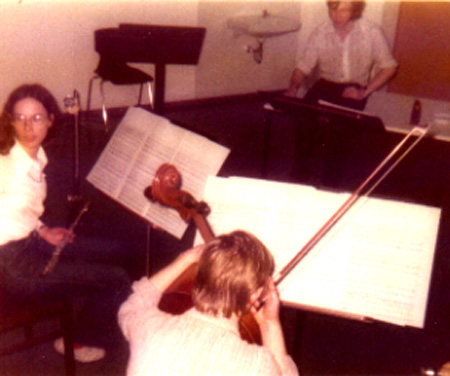
Vera - flute, Kurt - cello, Mark Graveson - conductor.
The musicians perform in a time suspension. They perceive the music at a tempo twice as slow and an octave plus a semitone lower in pitch. After all of the editing and piecing together of parts the tape was sped up to equal 34 minutes equalizing the musicians performance with the slide show. The result is a semitone higher than an octave, 13 semitones and at a semitone more than twice the speed, chain reactions.
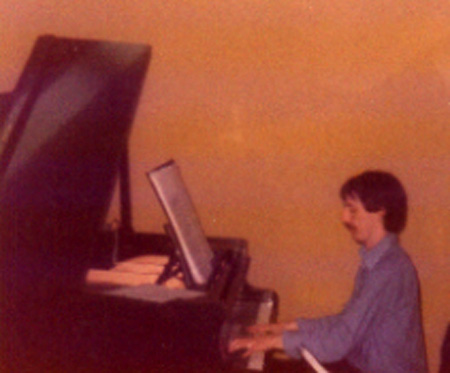
John McAlpine - piano.
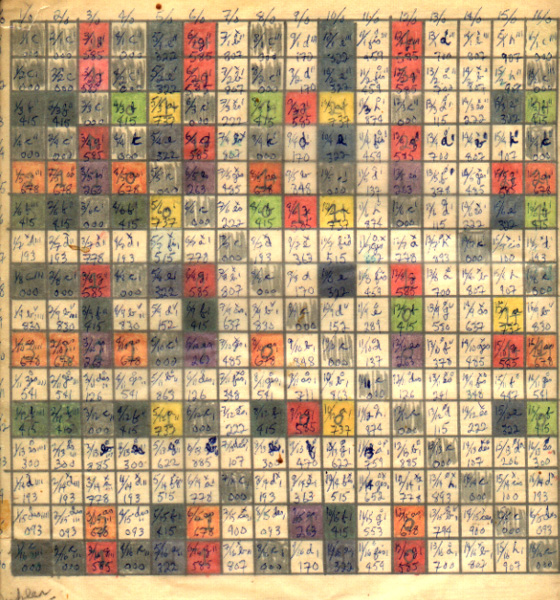
Color Scheme in Lambdoma Format.
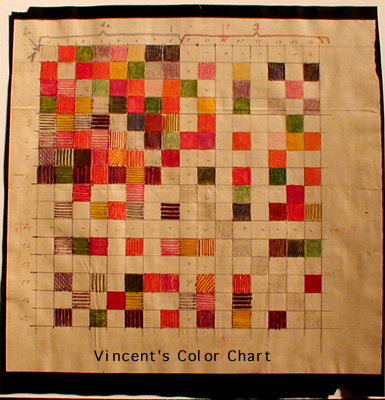
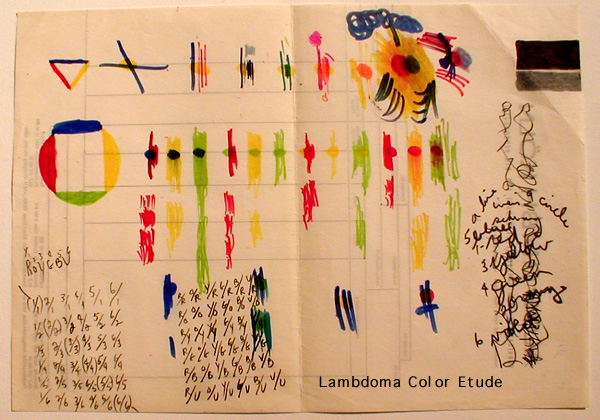
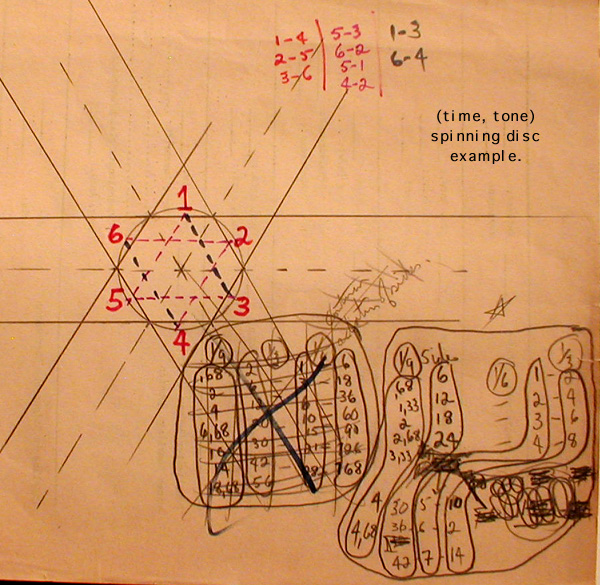
In June during my departure from Cologne I never got a copy of the slide show from Herbert. In those days it would have been quite costly to reproduce 312 slides. Add to that the pre-internet distance between Cologne and Los Angeles and well, life.. So the years past and I remained in contact with Vincent up until the 90s. I knew he was suffering from leukemia when I visited with him in 1988. Since I had a written log of all 312 slides, Vincent's photograph of each painting and a scanner, I decided to reconstruct the slide show. I changed it to a vertical screen format and even with some small various omissions and additions it should be fairly close to Herbert's distributions.
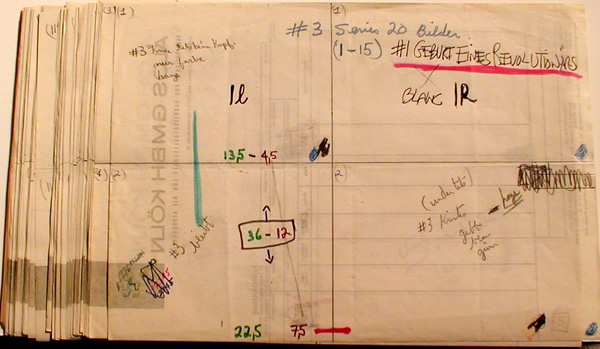
Left and right slide screens with time and description for all 312 slides.
I wanted to experience this music as harmonic freefall through Herbert's readymade time sequence. Falling with the tones in Herbert's time could relieve me from the responsibility for placing rhythmic notation. Here the algorithm begins to take over part of the compositional process. I realized that at full throttle the algorithm could produce the music entirely from the data at hand. I began with caution and started testing this harmonic stream of time and tonality by using three compositional techniques that advance simultaneously, while being either featured or supported and interchangeable according to artistic choice, taste. In technique 1 the motion of the harmonic stream is like a group of various turning prayer wheels inscribed with the tonal harmonics for each slide projection. This musical theme finally establishes itself in Painting #10, Good Tasting Badness - the fall from grace, and is more easily heard and perceived from that time onward as the algorithm of an automatic music. Technique 2 composes the music as if playing a game of Jacks. The ball dropping is Herbert making a change to either of the two projection screens. The Jacks are the number of tonal harmonics to discharge before the next ball drops. Technique 3 is a full-on musical joy juggling of thematic music that rides theatrically upon the paintings through an implied sea of tonal and visual harmony.
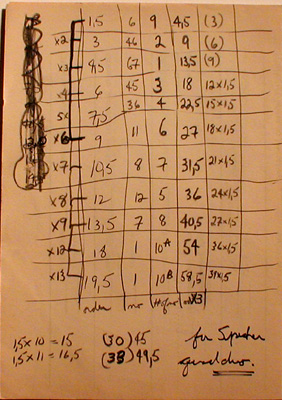
Frame durations from Herbert Menke - slides serialized
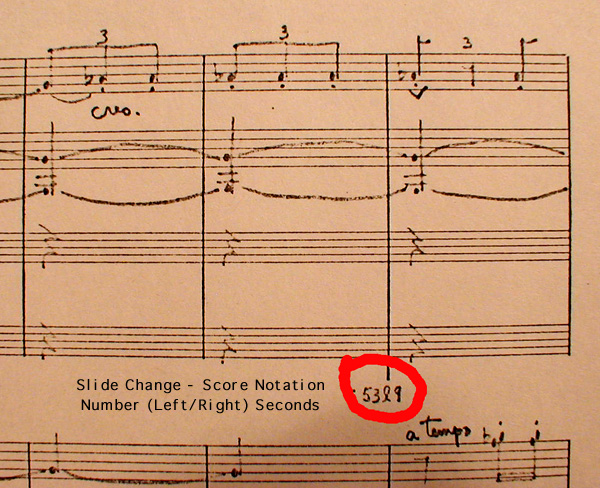
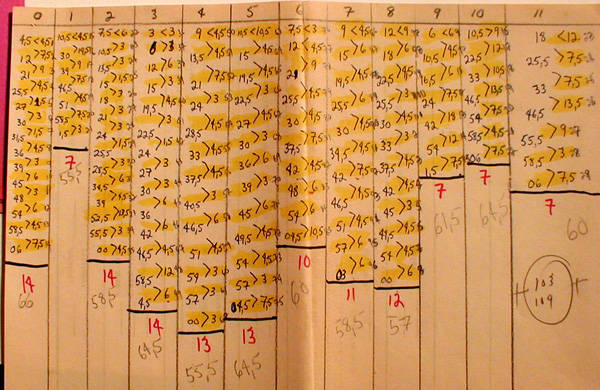
Order of frames within the slide show (extract).
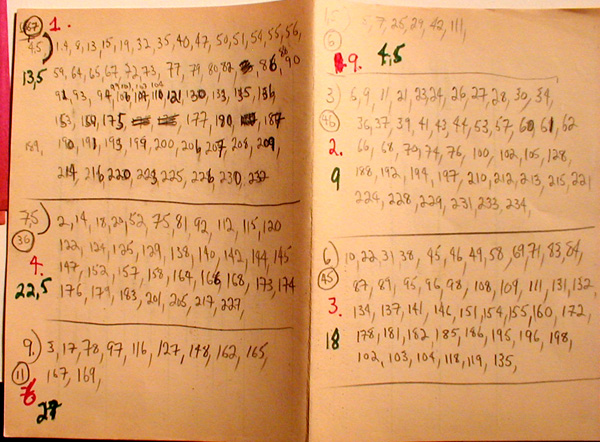
Time series based upon slide durations (extract).
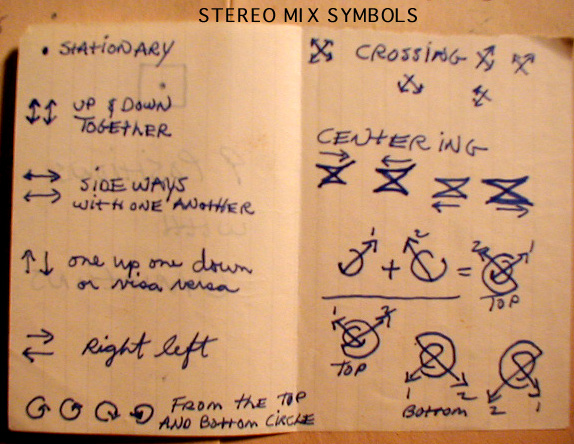
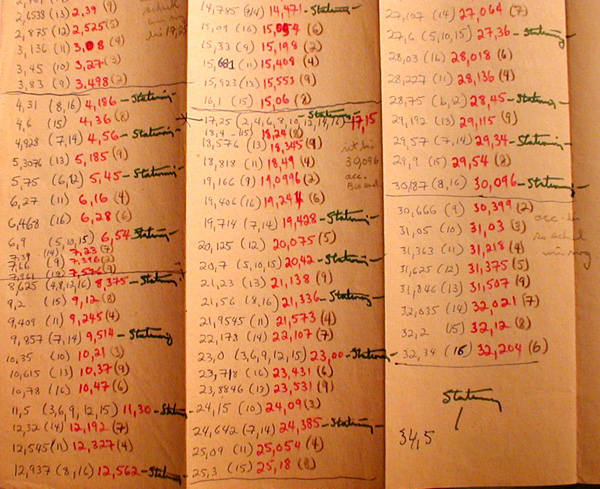
Stereo mix table by number (extract).
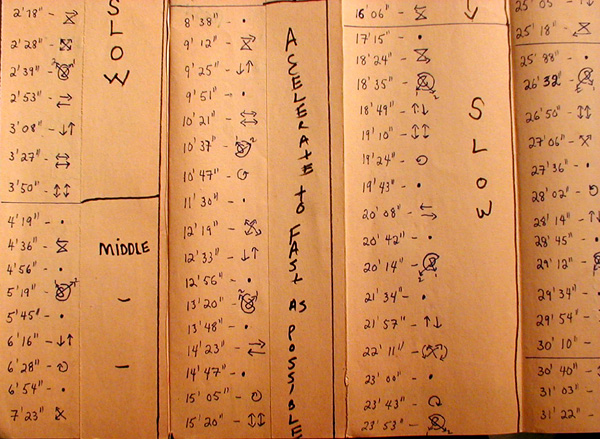
Stereo Mix (cropped).
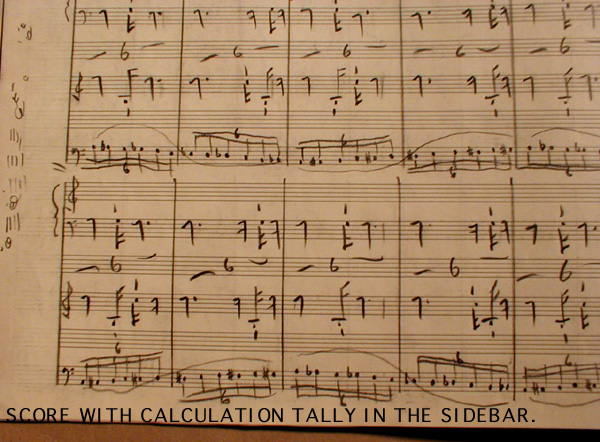
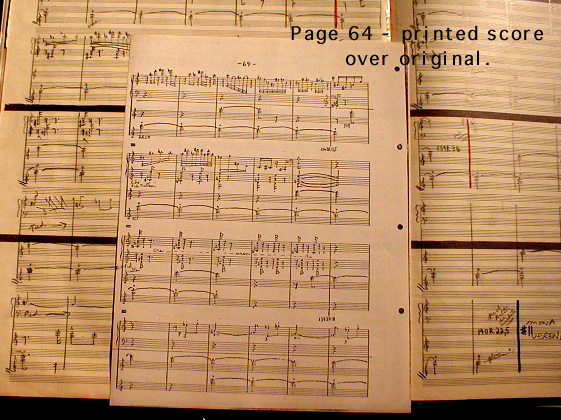
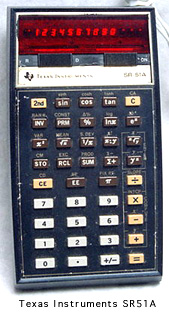
This TI calculator, a marvel for its time with 3 part memory, was used as the hardware
interface to calculate paper computer algorithmic instructions and to place
the music notes at their specific time locations in the score.
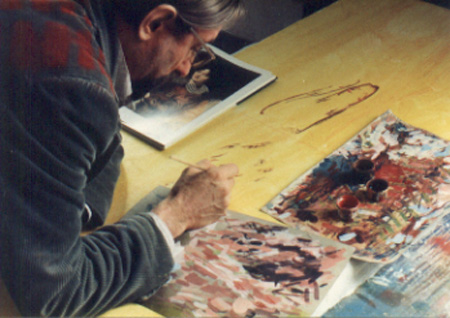
Vincent Tillmann 1988.
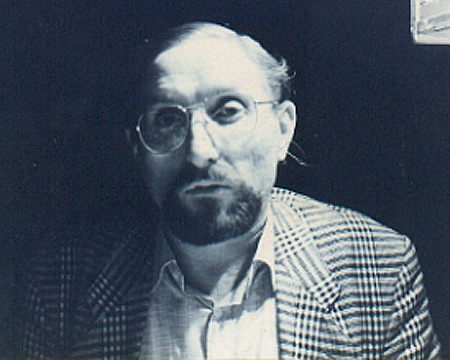
Vincent Tillmann 1988.
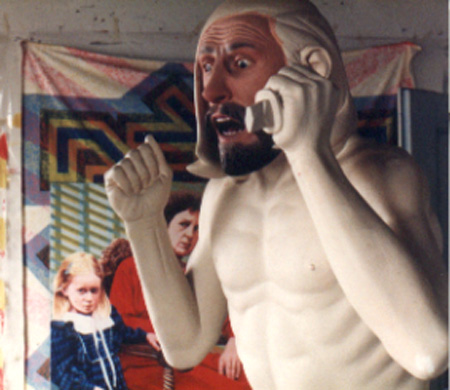
Tillmann self-sculpture with painting in background.
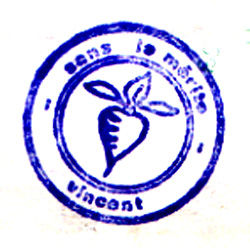
Tillmann's stamp used to sign his paintings.
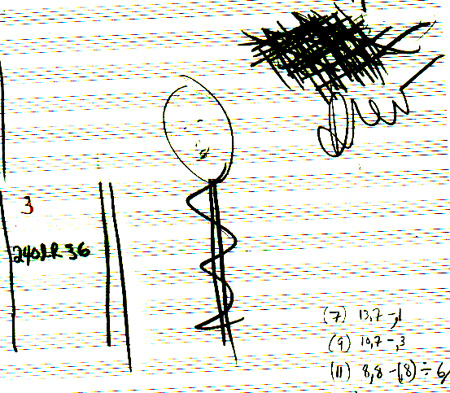
Last page of handwritten score.